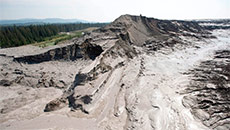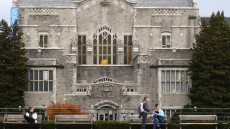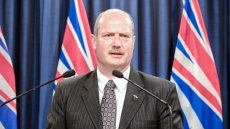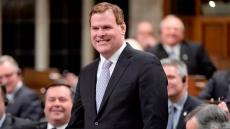OTTAWA — The Supreme Court of Canada will delve into the legalities of overseas spying by the Canadian Security Intelligence Service.
The federal government had urged the high court to hear the case, arguing that guidance was needed on the issue even though the Conservatives had introduced legislation to clarify foreign intelligence-gathering powers.
In its arguments, the government said recently tabled legislation didn't overtake the high-profile issue of whether CSIS needed a warrant to seek allied help in spying on Canadians abroad.
It said CSIS was left in the dark as to when a judge's approval is needed to monitor suspected Canadian extremists in other countries.
Federal lawyers also said lower courts made significant errors in dealing with the delicate matter.
As usual, the Supreme Court gave no reasons Thursday for agreeing to examine the case. No hearing date has been set.
In a central 2013 ruling, Federal Court Justice Richard Mosley chastised CSIS over a request for warrants to track two Canadians with help from the Communications Security Establishment, Canada's electronic spy agency.
Mosley said CSIS breached its duty of candour by failing to disclose that CSE's foreign counterparts in the so-called Five Eyes intelligence network — the United States, Britain, Australia and New Zealand — could be called upon to assist.
He also warned that CSIS and CSE were incurring the risk Canadian targets "may be detained or otherwise harmed" as a result of foreign agencies' use of the intercepted communications.
The Federal Court of Appeal upheld Mosley's judgment.
The appeal court declared that a warrant is required when CSIS — either directly or through the auspices of a foreign spy service — uses "intrusive" methods such as interception of telecommunications. It said such warrants could be issued when the interception "is lawful where it occurs."
The government, however, said the question of whether a warrant is required in such circumstances would remain "an important issue" even if the bill currently before Parliament becomes law.
Gordon Cameron, an Ottawa lawyer appointed to test the federal arguments, said the high court shouldn't bother with the case because the federal bill could make the key issue moot.
The legislation, introduced in late October, would explicitly allow CSIS to seek a warrant to investigate a security threat beyond Canada's borders — something the government flags as a pressing concern as a number of young Canadians travel to train and fight with terrorist groups abroad.
Cameron said in his written submission that if the high court decided to hear the case — against his advice — it should wait "a reasonable period" to gauge the bill's effect.
The Supreme Court had previously confirmed that Canada didn't need a warrant when it asked Swiss authorities to turn over banking records related to a criminal probe of alleged kickbacks in the sale of Airbus planes, the government noted in asking the high court to take on the CSIS case.
That suggests CSIS doesn't need one when asking its Five Eyes allies to spy overseas.
Still, the government added, a fresh Supreme Court ruling is needed to clear up the uncertainty.





